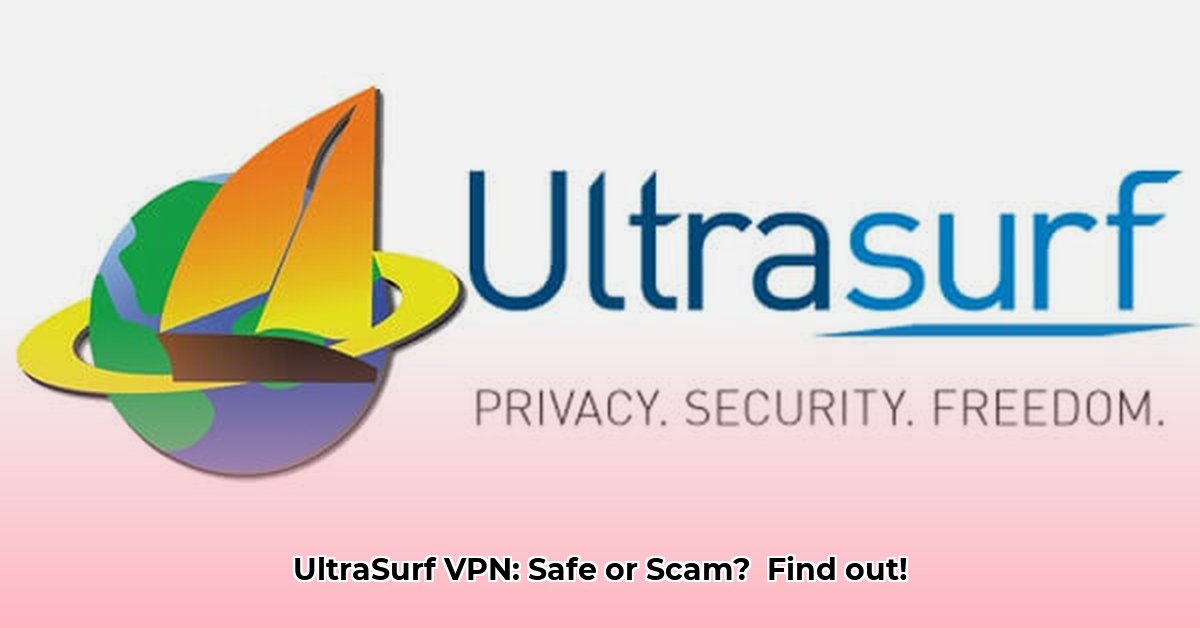
UltraSurf VPN promises to bypass internet censorship and protect your online privacy. But does it deliver? This review analyzes UltraSurf's security, privacy practices, and performance, offering a balanced perspective for tech-savvy users. We'll examine its capabilities and limitations, helping you determine if it's the right choice for your needs.
Circumventing Censorship: Effectiveness and Limitations
UltraSurf claims to effectively circumvent internet censorship in countries with restrictive online policies. However, independent verification of this claim is surprisingly scarce. While anecdotal evidence suggests some success, the extent of its effectiveness against sophisticated firewalls remains questionable. Is it truly a reliable solution for bypassing stringent censorship? The lack of robust, third-party testing leaves significant doubt.
Encryption and Security: Transparency Concerns
A VPN's security rests on robust encryption. UltraSurf's details on encryption methods, protocols, and key lengths are notably opaque. This lack of transparency hinders independent verification of its security strength. This opacity raises concerns: How can users confidently assess the effectiveness of its security measures without clear information? It's crucial to remember that a lack of transparency is, itself, a significant red flag.
Privacy Policy: Data Handling and User Trust
UltraSurf assures users it doesn't collect or sell personal data. However, this claim requires independent verification, currently lacking. A detailed, publicly available privacy policy and independent audits are essential for building user trust. Without them, concerns about data handling practices remain. Does UltraSurf truly uphold its claims about data privacy? The absence of clear evidence leaves considerable doubt.
Performance and Speed: Real-World Benchmarks and Considerations
While some sources praise UltraSurf's speed, the methodology behind these evaluations is often unclear. Real-world performance varies significantly based on server load, location, and internet connection. How does UltraSurf's speed compare to established VPN services? Independent speed tests and comparisons are needed to provide a more objective assessment. User experiences, while informative, should be analyzed cautiously given the limited overall evidence.
Risk Assessment: A Balanced Perspective
The following table summarizes the potential risks and benefits of using UltraSurf VPN:
| Feature | Risk Level | Mitigation |
|---|---|---|
| Encryption Strength | Medium to High | Demand complete transparency on algorithms and key lengths, and undergo independent audits. |
| Censorship Bypass | Medium to High | Independent verification of effectiveness in various regions and censorship systems is needed. |
| Data Handling Practices | High | Demand a detailed, independently audited privacy policy that outlines data collection, storage, and practices. |
| Server Locations | Medium | Investigate server locations for jurisdiction and data privacy regulations. |
Regulatory Compliance: Legal and Privacy Implications
The legal landscape for VPNs is complex. UltraSurf's compliance with data privacy regulations, such as GDPR or CCPA, is unclear due to the lack of transparency in its data handling practices. This ambiguity poses potential legal risks for both the company and its users. Does UltraSurf comply with relevant data protection laws? Further investigation is needed to clarify compliance with international and regional regulations.
Conclusion: Informed Choices and Responsible Usage
UltraSurf VPN might offer a basic means of accessing restricted content, but significant concerns remain. The lack of information regarding encryption, data handling, and performance necessitates a cautious approach. Thorough research is crucial before relying on UltraSurf. Explore alternatives offering greater transparency and verifiable security guarantees. Your online safety and privacy are paramount. Is UltraSurf the best choice for your needs, considering the risks? A careful consideration of alternatives is strongly recommended.
How to Evaluate UltraSurf's Security and Privacy Claims
Key Takeaways:
- UltraSurf's free service significantly compromises security features available in paid VPNs.
- Evaluating UltraSurf's claims requires careful scrutiny and comparison with established VPN providers.
Encryption and Security Protocols: A Detailed Look
UltraSurf utilizes encryption, but relies on older TLS/SSL protocols, falling short of modern standards. The absence of a kill switch further amplifies security risks. How can one confidently assess the stength of UltraSurf's encryption without transparent information on the protocols used? A critical analysis is needed to understand the limitations imposed by this choice.
Server Infrastructure and Transparency: Location and Jurisdiction
The lack of transparency regarding UltraSurf's server locations hinders risk assessment. The importance of knowing server locations in relation to data protection laws can't be overstated. This lack of information significantly impacts the overall security assessment.
Speed and Performance: A Real-World Assessment
Expect reduced speeds compared to leading VPN services. Independent benchmarks often highlight this performance gap. How would this speed limitation affect your online experience? Understanding the potential impact is necessary for a balanced evaluation.
Privacy Policy and Logging Practices: A Critical Analysis
UltraSurf's limited 30-day data retention policy, while better than some, doesn't meet the standards of a strict no-logs policy. How does this compare to the data retention policies of other VPN providers? This comparison is crucial for a comprehensive risk assessment.
Customer Support and Ease of Use: A Compromise
While UltraSurf boasts ease of use, its limited customer support is a significant drawback. How does this compare to the dedicated customer support offered by established VPN providers? This contrast is important to consider.
UltraSurf vs. Premium VPNs: A Comparative Analysis
| Feature | UltraSurf | Premium VPN |
|---|---|---|
| Encryption | Basic, older protocols | Strong, modern protocols |
| Kill Switch | Absent | Present |
| Server Transparency | Low | High |
| Speed | Significantly slower | Significantly faster |
| Logging | Limited data retention (30 days) | Strict no-logs policies (often audited) |
| User Support | Limited | Robust |